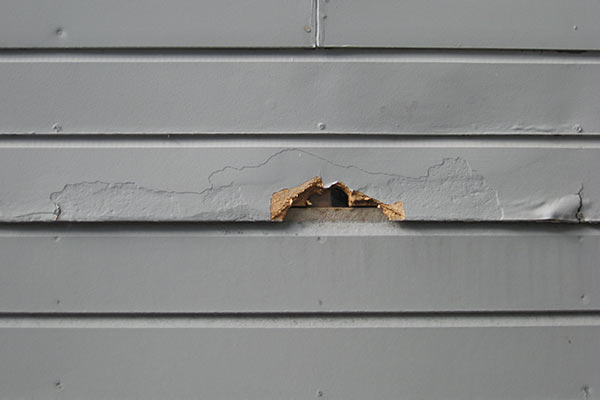Our companies are backed by the Best Pick Guarantee. Call one today!
So, you have one window that needs replacing. A small job means an easy fix, right? Well, not so fast.
One thing we’ve learned through the experiences of homeowners who use Best Pick Reports to find reputable contractors is that small jobs can end up being more troublesome than larger ones.
Homeowners will reach out to our top-rated professionals, only to find out that their job isn’t a good fit for the company. (It’s not you, it’s them.)
At first blush, it’s probably a bit confusing as to why companies seem either unwilling or unable to take on smaller jobs. After all, you may just need one window or piece of siding replaced. But the company has a four- or five-window minimum or will only do a full siding replacement. So, the search continues.
Why won’t these companies take on small jobs? Don’t they like money? Don’t be silly, of course they do, which is probably why they aren’t rushing to replace that one piece of siding for you.
Here’s what we’ve learned about contractors and small jobs as well as the best approaches for homeowners needing small fixes.
Why Many Contractors Avoid Small Repair Jobs

They’ll lose money.
Due to economies of scale, the math typically won’t add up for companies when it comes to small jobs.
Running a business requires a significant amount of overhead. Between rent, equipment, salaries, etc., companies need to bring in a certain amount of revenue to meet their obligations and, ideally, turn a profit.
Sending a technician out on smaller jobs means that he or she is unavailable to carry out a larger, higher revenue job; in other words, the company is losing money. Compounding the problem is the fact that homeowners expect to pay less for a small job, making them an unappealing prospect for your average contractor.
Factoring in travel time, job time, and technician and administrative pay as well as the opportunity cost for missing out on higher dollar-value jobs, and it begins to become clear why small repair jobs are often turned down.
More is cheaper.
Closely related to the first reason is the fact that materials tend to follow a typical pattern; buying in bulk results in savings. Think of the last time you went to Costco, BJ’s Warehouse, or Sam’s Club. They offer you a discount because you’re buying a lot (more than you probably need). Most goods follow this pattern.
If the company needs to buy a very small amount of a material to complete a project for you, it’s going to be much more expensive to purchase per unit than if it were part of a much larger order. For example, per-window replacement costs are much lower when replacing two dozen windows versus just two.
Contractors aren’t running charities, so it’s virtually a certainty that any extra costs pass directly on to the customer.
You’ll pay too much.
One obvious solution that would make small repair jobs more appealing for contractors would be charging higher rates for minor repairs, enough to make taking on these jobs a worthwhile prospect. In turn, that would likely mean a much larger bill than most homeowners would be willing to foot for a “minor” repair.
Some companies may offer to do small repairs at, let’s say, “elevated” prices, knowing full well that few homeowners will be willing to shell out that kind of money. It’s a way to offer the service and ensure that your team will only have to perform few, if any, of these small jobs. Broken window repairs can be costly if you look in the wrong place.
It’s safe to say that these prices aren’t set out of greed, but as a way of deterring leads with little financial upside for the company.
They don’t have the manpower.
The company’s technicians or teams may already all be tied up with larger projects, meaning that the company doesn’t have manpower to spare for dealing with minor jobs.
There is one common exception: many companies will perform these kinds of smaller repair jobs, but the catch is that they’ll only do it if they performed the original installation.
It’s not so much a double standard as it is smart business practice. Many of these small jobs potentially fall under product or labor warranties, obliging the companies to fulfill their commitments to customers by performing these kinds of jobs.
In a nutshell, that’s why trying to get contractors to handle small jobs can be such a headache. Mystery solved! But then, the original problem remains: you’re not any closer to getting that window fixed!
So, what are your options?
What to Do About Small Repair Jobs

Contact the original installer.
As mentioned above, many companies will perform service or repair work for someone if they performed the initial installation or service. If possible, contact the company that did the initial work to see if they can help you out.
If a previous homeowner contracted the work, check any records they left you to see if a warranty is still in effect and whether it is transferable.
Wait until you’re ready to have the entire job done.
If it isn’t crucial to have the work done ASAP and you think you may have a full job performed in the not-too-distant future, it may make sense to wait until you’re ready to have the entire roof replaced than trying to find someone to patch up a few shingles.
Of course, then you’ll have warranty coverage, and follow-up work should be easy to take care of. Unfortunately, not all jobs can wait, so only put it off if safety and comfort allow.
Hire a handyman.
By their very nature, handyman services are better equipped to take on a variety of smaller jobs. They’ll likely be able to offer a more affordable rate to homeowners since they are typically geared toward doing smaller jobs. Since handymen typically offer a variety of services, it’s also possible to have them take care of multiple different small projects in one go.
DIY.
Depending on the size and difficulty of the job, it may be possible for you to do the work yourself. However, exercise extreme caution, since careless mistakes can either put you at risk for injury or make the problem even worse. Know where to draw the line, or DIY can easily turn into “did it to yourself” projects.
Even for work that falls outside of warranty coverage, companies are wise to do this kind of work for customers; it engenders return business, goodwill, and, hopefully, referrals.
The Bottom Line on Small Repair Jobs
Before you get your blood pressure up calling companies to find a contractor that can replace those two pieces of siding, keep in mind that you’ll be facing an uphill battle. Instead, contact the original installer or focus your efforts on finding a capable handyman service or a company that explicitly performs repair work on something they did not originally install.
As a last resort, you can make it a DIY project. This should only be a consideration for projects that don’t require significant technical knowledge and that you can complete without putting yourself at risk.


























